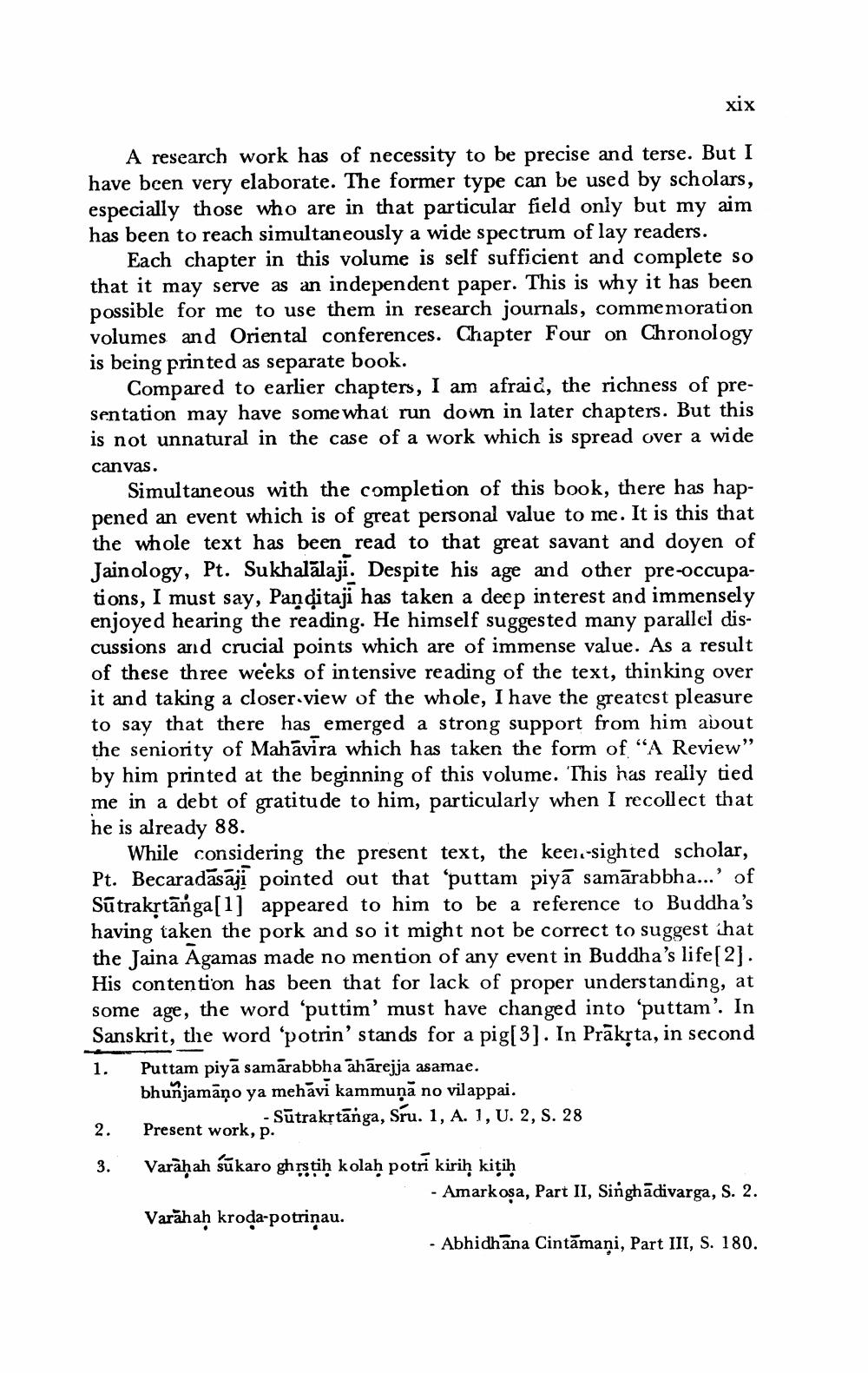________________
xix
A research work has of necessity to be precise and terse. But I have been very elaborate. The former type can be used by scholars, especially those who are in that particular field only but my aim has been to reach simultaneously a wide spectrum of lay readers.
Each chapter in this volume is self sufficient and complete so that it may serve as an independent paper. This is why it has been possible for me to use them in research journals, commemoration volumes and Oriental conferences. Chapter Four on Chronology is being printed as separate book.
Compared to earlier chapters, I am afraid, the richness of presentation may have some what run down in later chapters. But this is not unnatural in the case of a work which is spread over a wide canvas.
Simultaneous with the completion of this book, there has happened an event which is of great personal value to me. It is this that the whole text has been read to that great savant and doyen of Jain ology, Pt. Sukhalālaji. Despite his age and other pre-occupations, I must say, Panơitaji has taken a deep interest and immensely enjoyed hearing the reading. He himself suggested many parallel discussions and crucial points which are of immense value. As a result of these three weeks of intensive reading of the text, thinking over it and taking a closer.view of the whole, I have the greatest pleasure to say that there has emerged a strong support from him about the seniority of Mahāvira which has taken the form of "A Review”. by him printed at the beginning of this volume. This has really tied me in a debt of gratitude to him, particularly when I recollect that he is already 88.
While considering the present text, the keen-sighted scholar, Pt. Becaradāsāji pointed out that 'puttam piyā samārabbha...' of Sūtrakstānga[1] appeared to him to be a reference to Buddha's having taken the pork and so it might not be correct to suggest ihat the Jaina Agamas made no mention of any event in Buddha's life[2] . His contention has been that for lack of proper understanding, at some age, the word 'puttim' must have changed into 'puttam'. In Sanskrit, the word 'potrin' stands for a pig[3]. In Prākṣta, in second 1. Puttam piyā samarabbha āhārejja asamae.
bhunjamāņo ya mehāvi kammuṇā no vilappai. 2. Present work. Sūtrakstānga, Sru. 1, A. 1, U. 2, S. 28 3. Varāḥah sukaro ghrstih kolaḥ potri kirih kițih
- Amarkosa, Part II, Singhādivarga, S. 2. Varāhaḥ kroda-potriņau.
· Abhidhāna Cintāmaņi, Part III, S. 180.




